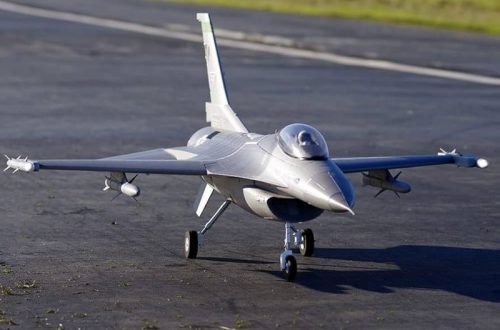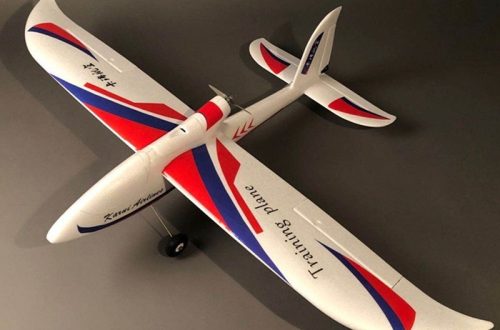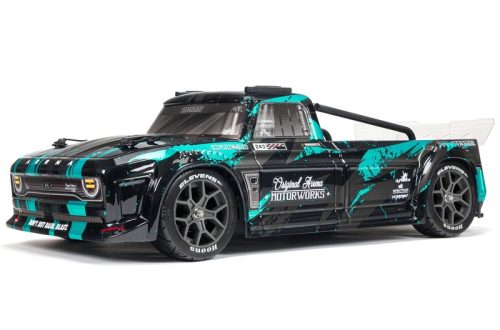Introduction to RC Off-Road Cars
RC off-road cars are thrilling, versatile vehicles designed for the rugged outdoors. They can navigate through tough landscapes where ordinary RC cars would falter. For enthusiasts and hobbyists, an rc off-road car offers a challenging yet satisfying experience. These vehicles come with features that enable them to tackle various terrains. From sandy dunes to rocky trails, they conquer with ease.
The appeal of rc off-road cars lies in their robust construction and advanced engineering. Unlike standard RC models, these cars boast a higher clearance. This means they can clear obstacles with little difficulty. They are equipped with powerful motors that provide the torque necessary for steep inclines and rough patches. Additionally, their shock absorbers are typically more refined, allowing for smooth rides over bumpy surfaces.
If you’re new to this exciting hobby, understanding the basics is crucial. Selecting the right rc off-road car involves considering several factors. You have to think about the size, power source, and intended use. A smaller, electric-powered car might be perfect for backyard adventures. Meanwhile, a larger, gas-powered model could be better suited for competitive racing.
Next, we’ll delve into the essential features that make an rc off-road car stand out. We’ll also explore how to choose the right one for your needs. Then, we’ll cover the basics of operation, including control and maneuvering techniques. After that, we’ll provide expert tips for navigating rough terrain.
Essential Features of RC Off-Road Cars
When shopping for an rc off-road car, knowing the key features is vital. These features determine the car’s capability to handle rugged conditions and impacts. Here are the critical aspects:
- Rugged Tires: These cars have deep treads that grip onto various surfaces. They maintain traction on loose gravel, mud or sand.
- High Torque Motors: The engine’s power is crucial. A robust motor gives your car the push to climb steep hills and power through obstacles. The torque is especially important for acceleration and handling tough terrain.
- Suspension System: A quality suspension absorbs shocks from uneven ground. This makes for smoother driving and less strain on the vehicle’s frame.
- Ground Clearance: The space between the car’s body and the ground matters. More clearance allows your rc off-road car to pass over rocks and roots without getting hung up.
- Durable Chassis: The car’s body must withstand hits and falls. A sturdy chassis prevents damage during rollovers or crashes.
- Water Resistance: Some off-road conditions are wet. Look for cars that can handle puddles and damp environments.
- Battery Life: For electric models, a long-lasting battery means more playtime. It reduces the interruption due to frequent charging.

Each of these features adds to an rc off-road car’s resilience and performance. Check for these when you weigh your options. They will ensure you get a vehicle capable of taking on the outdoor adventures you crave.
Choosing the Right RC Off-Road Car for Your Needs
When picking the perfect rc off-road car, your needs come first. Start with size. A large car is best for open spaces. A small one fits better in tight spots. Think about where you’ll drive your car before you choose.
Next, consider the power source. Electric cars are clean and quiet. They suit indoor or crowded places. Gas-powered cars pack more punch. They fit best in outdoor, open areas where noise is less of an issue.
Consider the car’s purpose. If you plan just for fun, a basic model will do. For racing, aim for higher specs. More speed and better control are key for competition.
Then, there’s the budget. Higher cost often means better quality. But great options exist at lower price points. Balance your needs with how much you can spend.
Also, think about battery life for electric cars. Longer battery life equals more playtime. Fewer interruptions make for a better experience.
Lastly, look at support and parts availability. Can you get replacements easily? Is there a community for help? This might affect your choice.
By considering these factors, you’ll find the right rc off-road car. One that fits your desires, place of use, and budget.
Basics of Operating an RC Off-Road Car
Operating an rc off-road car is exciting and engaging. To get started, you’ll need to familiarize yourself with the basic controls. Most rc off-road cars come with a standard controller equipped with a steering wheel and throttle trigger. The steering wheel controls the direction you want your car to go. Turning it to the right will steer the car to the right, and left for left turns. The throttle trigger manages the speed. Squeezing the trigger makes the car accelerate, while releasing it slows the car down.
Before you begin driving, always check to ensure batteries are fully charged. This is vital for electric-powered vehicles to avoid mid-run power loss. For gas-powered models, make sure you have the proper fuel mix and the engine is primed.
Once you’ve confirmed the power source is ready, place the car on a flat, open space. This gives you room to practice without obstacles. Start with slow, short drives to understand how the car responds. Pay attention to how it handles different surfaces like grass, dirt, or gravel. Practice turning at various speeds and note the turning radius.
Remember, rc off-road cars can be fast and powerful. It’s essential to drive responsibly and be aware of your surroundings. Always keep a safe distance from people, animals, and avoid driving on public roads.
As you get more skilled, you’ll learn how to use the car’s features to your advantage. High torque motors and suspension systems come into play, especially on uneven ground. Apply gradual throttle on steep inclines to prevent flipping. Adjust your speed to maintain control during descents.
Proper operation is the key to mastering your rc off-road car. With practice, you’ll enhance your driving techniques and enjoy every off-road challenge that comes your way.

Tips and Techniques for Driving RC Off-Road Cars on Rough Terrain
Driving RC off-road cars on rough terrain can be challenging. To master it, you need the right techniques. Start by practicing throttle control. Smooth acceleration helps prevent losing grip on slippery surfaces. Next, master the art of steering. Aim for gentle turns. Sharp movements may cause rollovers.
When approaching obstacles, approach slowly. Assess before you navigate over them. Use your car’s torque and clearance to your advantage. This helps in climbing over rocks or roots. On steep inclines, maintain a steady speed. This prevents your rc off-road car from tipping backwards.
Descending hills requires caution. Slow down and control the car’s speed to avoid tumbling forward. Remember to let the suspension do its work. Don’t force the car over large obstacles. In muddy conditions, keep a constant speed. This maintains momentum and traction.
If your rc off-road car has different driving modes, use them. Switching to a mode suited for rocks or sand can improve performance. Always plan your route. Look ahead and choose the best path that avoids damage to your car.
Finally, practice makes perfect. Spend time learning how your car handles. Knowing how it reacts to different terrains will improve your driving. With these tips, you’ll enjoy your rc off-road car to the fullest on any rough terrain.
Maintenance and Upkeep of RC Off-Road Vehicles
Keeping your rc off-road car in top shape is essential. This section aims to guide you through the maintenance routines that can ensure your vehicle performs well and lasts longer. Here’s what you need to focus on for maintenance and upkeep:
Regular Cleaning:
After each use, clean your car. Dirt and debris can hinder performance. Use a brush and compressed air to get rid of dirt from chassis and components.
Battery Care:
For electric models, proper battery handling is crucial. Charge them using the correct protocol. Store them in cool, dry places. Inspect them routinely for any signs of wear or damage.
Engine Maintenance:
For gas-powered cars, regular engine checks are important. Clean the air filter, check the fuel lines and ensure that the cooling head is not blocked.
Tire Inspection:
Check your tires for cuts and wear. Worn tires reduce traction. Replace them when needed to maintain good grip on various terrains.

Suspension Check:
Examine suspension components periodically. Look for any broken parts. Oil shock absorbers to keep them functioning smoothly.
Electronics Inspection:
Check the wires, receiver, and servos for damage. Ensure all electronic parts are dry and clean. Secure any loose connections.
Gear and Bearing Lubrication:
Apply lubricant to gears and bearings. This reduces friction, promotes smooth operation, and extends their life.
Update and Upgrade:
Stay updated with the latest parts. Upgrade when necessary. Stronger parts can improve performance and durability.
Good maintenance habits can prevent breakdowns and costly repairs. They contribute to enjoyable and uninterrupted driving experiences. Stick to a regular schedule to keep your rc off-road car ready for any adventure.
Popular Models and Brands of RC Off-Road Cars
When venturing into the world of RC off-road cars, knowing the popular models and brands can guide your choice. The market boasts a variety of vehicles, each with distinct features to cater to different preferences. Below, we highlight some top picks that have captured the attention of hobbyists and racers alike.
- Traxxas: A leading name in the RC car industry, Traxxas offers models known for their durability and speed. Their cars often come ready to run, which is great for beginners.
- Axial: Specializing in crawling and scaling models, Axial rc off-road cars are built to overcome intricate terrains. They are a favorite for those who enjoy realistic off-road challenges.
- Losi: With a focus on high performance, Losi’s rc off-road cars appeal to competitive racers. Their vehicles have a reputation for exceptional handling and speed.
- HPI Racing: HPI Racing combines innovative designs with robust construction. Their cars are suited for all kinds of off-road conditions and are versatile in use.
- Tamiya: Renowned for their detailed scale models, Tamiya offers rc off-road cars that are both visually appealing and capable performers. They cater to hobbyists who appreciate precision.
- Arrma: Known for their tough and fast vehicles, Arrma’s rc off-road cars can take on extreme conditions without sacrificing performance.
These brands have established themselves with quality products that cater to a range of users. Whether you’re a beginner looking for an easy start or a seasoned racer in search of a top-tier vehicle, these models offer something for everyone.
When choosing, consider what aligns best with your interests and the level of competition you aim for. Also, remember to check the availability of parts and community support for your chosen brand. A popular model often means a helpful community and readily available parts and upgrades.
Getting Involved in the RC Off-Road Racing Community
Joining the RC off-road racing community can bring your hobby to a new level. Here, passion for RC off-road cars meets competition and camaraderie. To get started, search for local clubs or online forums. These places connect you with fellow enthusiasts. Attend events or races to see the action live. By doing so, you can pick up new skills and techniques.
Sign up for local races to test your skills. Don’t worry about your level. These events welcome all, from beginners to experts. Plus, racing sharpens your control and operation of your RC off-road car. Following established racers online can also teach you a lot. Watch their videos, and you might learn a thing or two about maneuvering.
For a deeper involvement, consider volunteering at events. This helps you understand the ins and outs of racing. It can also lead to making lasting connections within the community. Most importantly, share your own experiences. Post about your races, car modifications, or track designs.
Participating in online discussions is another way to engage. Offer advice, share your passion, and ask questions. You’ll find support and maybe even friendships. Remember, respect and positivity are key. They’ll help you become a valued member of the RC off-road racing world.
Final thoughts: dive into the RC off-road racing community with gusto. Whether you race, volunteer, or connect online, you’re sure to enhance your enjoyment of this thrilling hobby.




